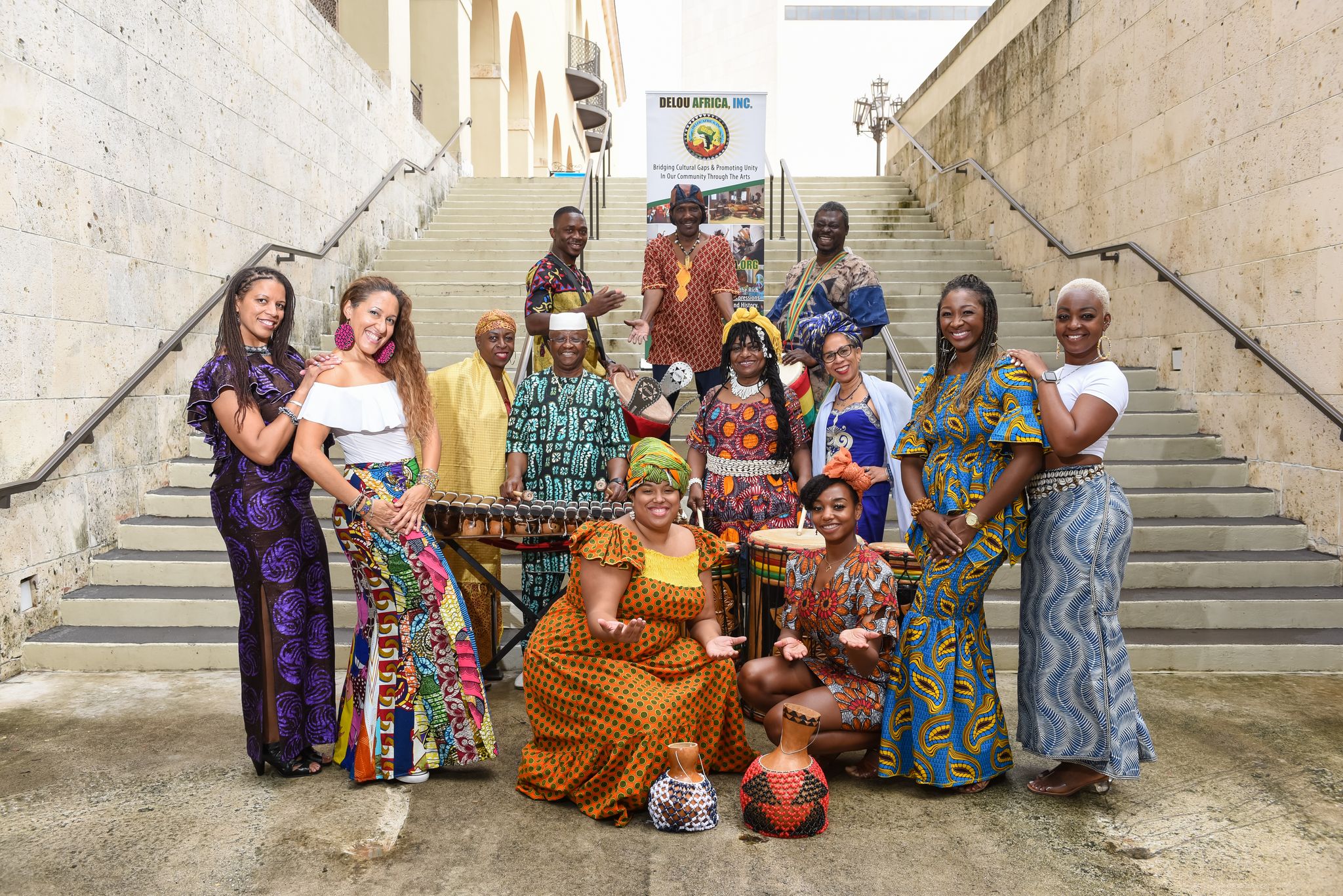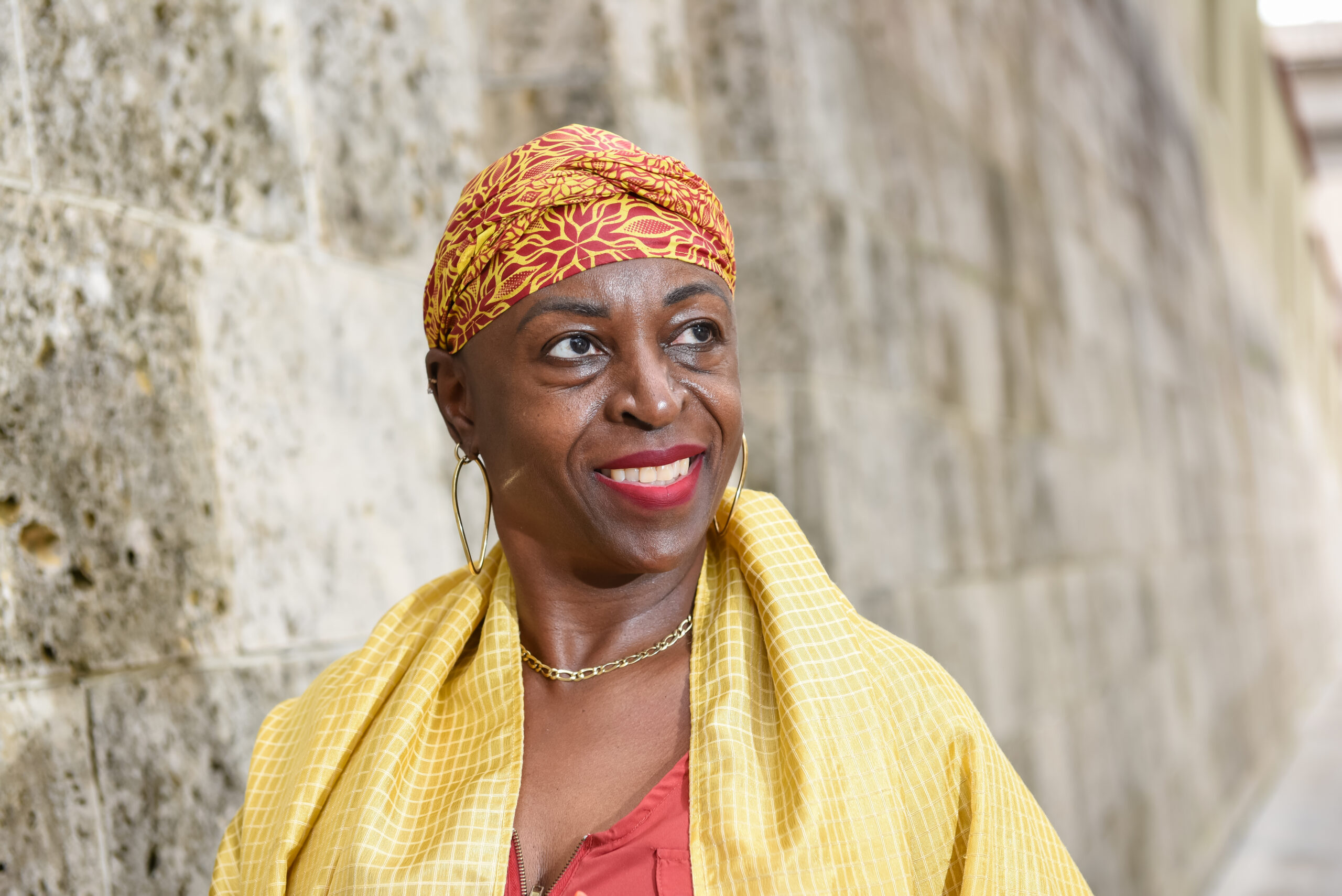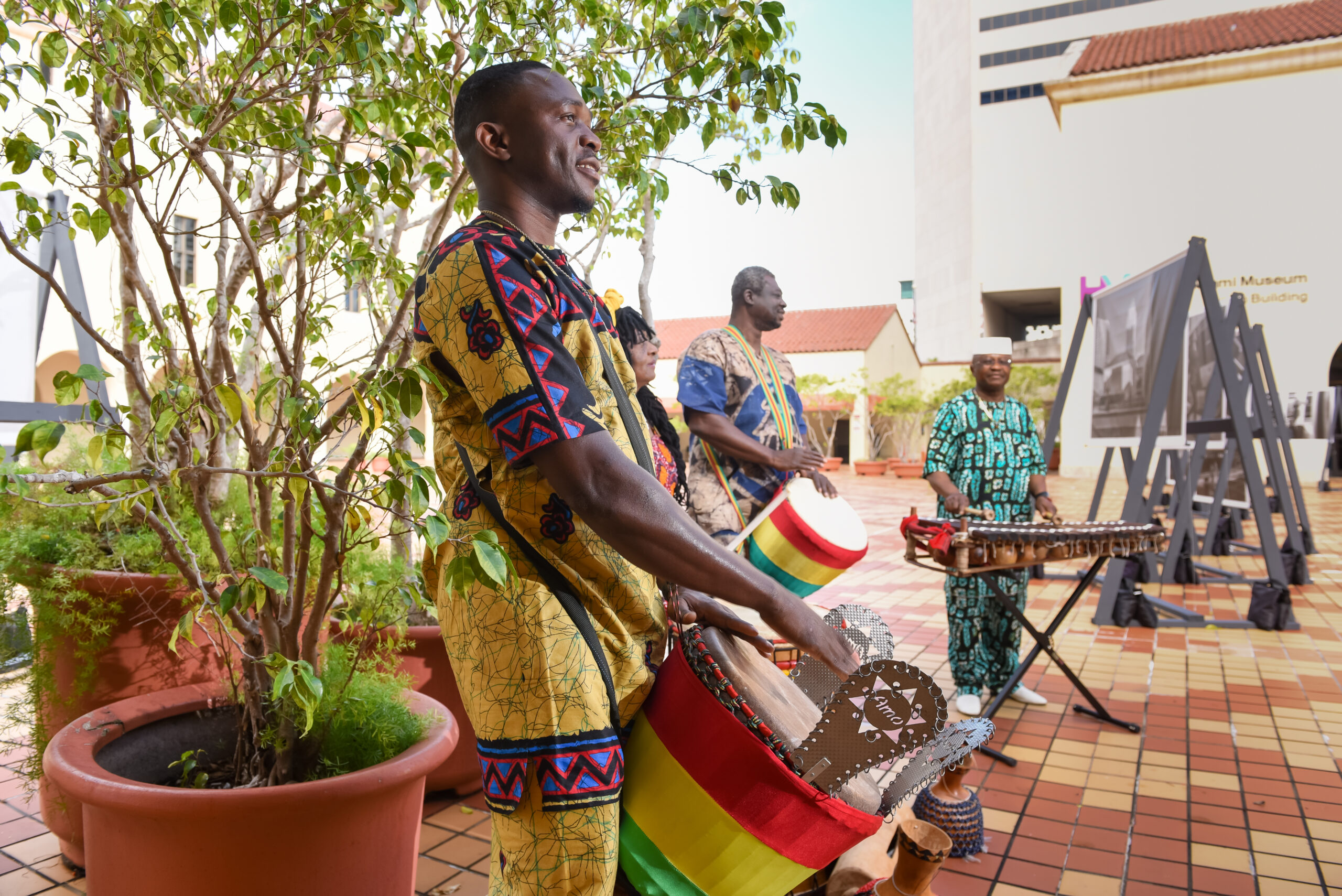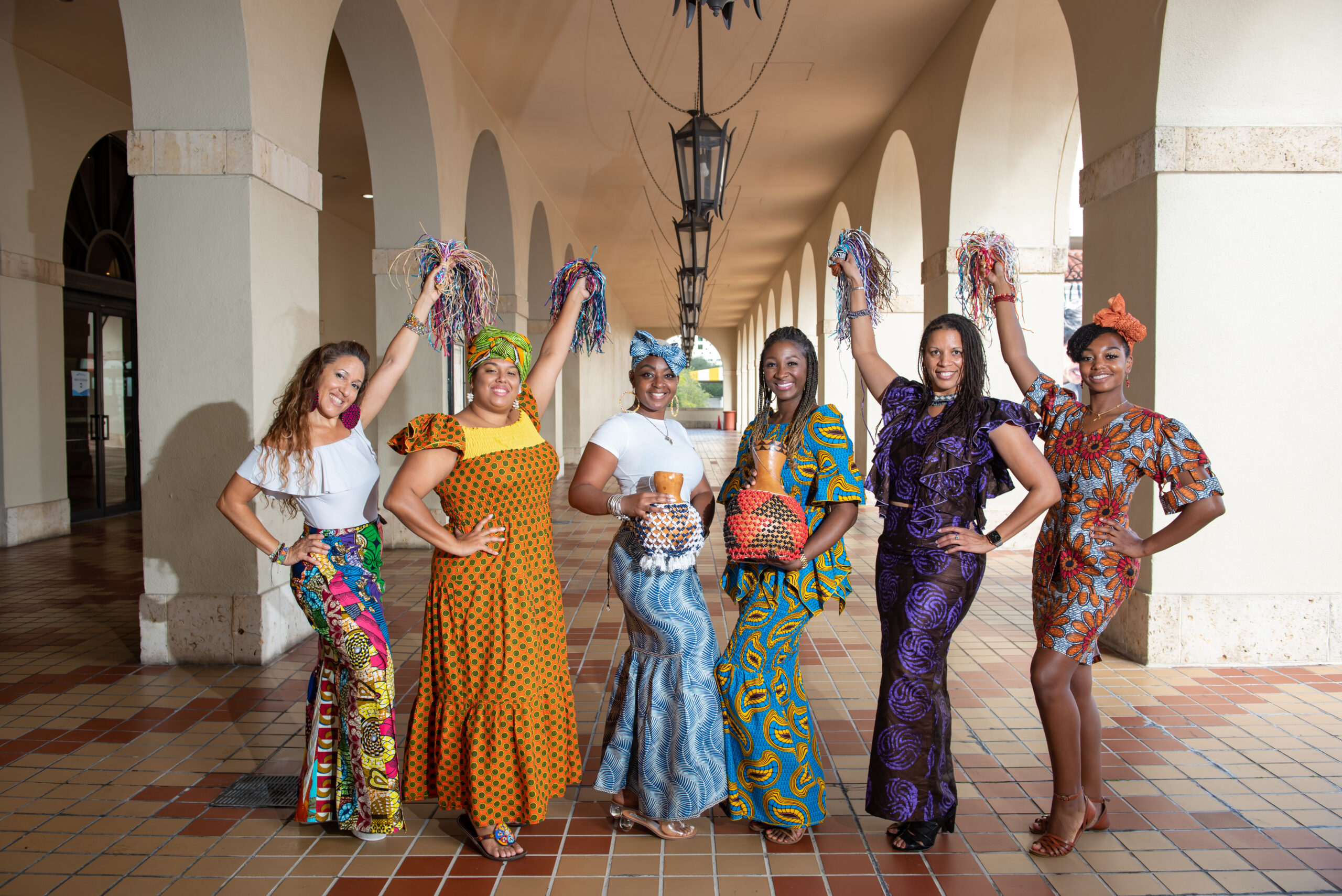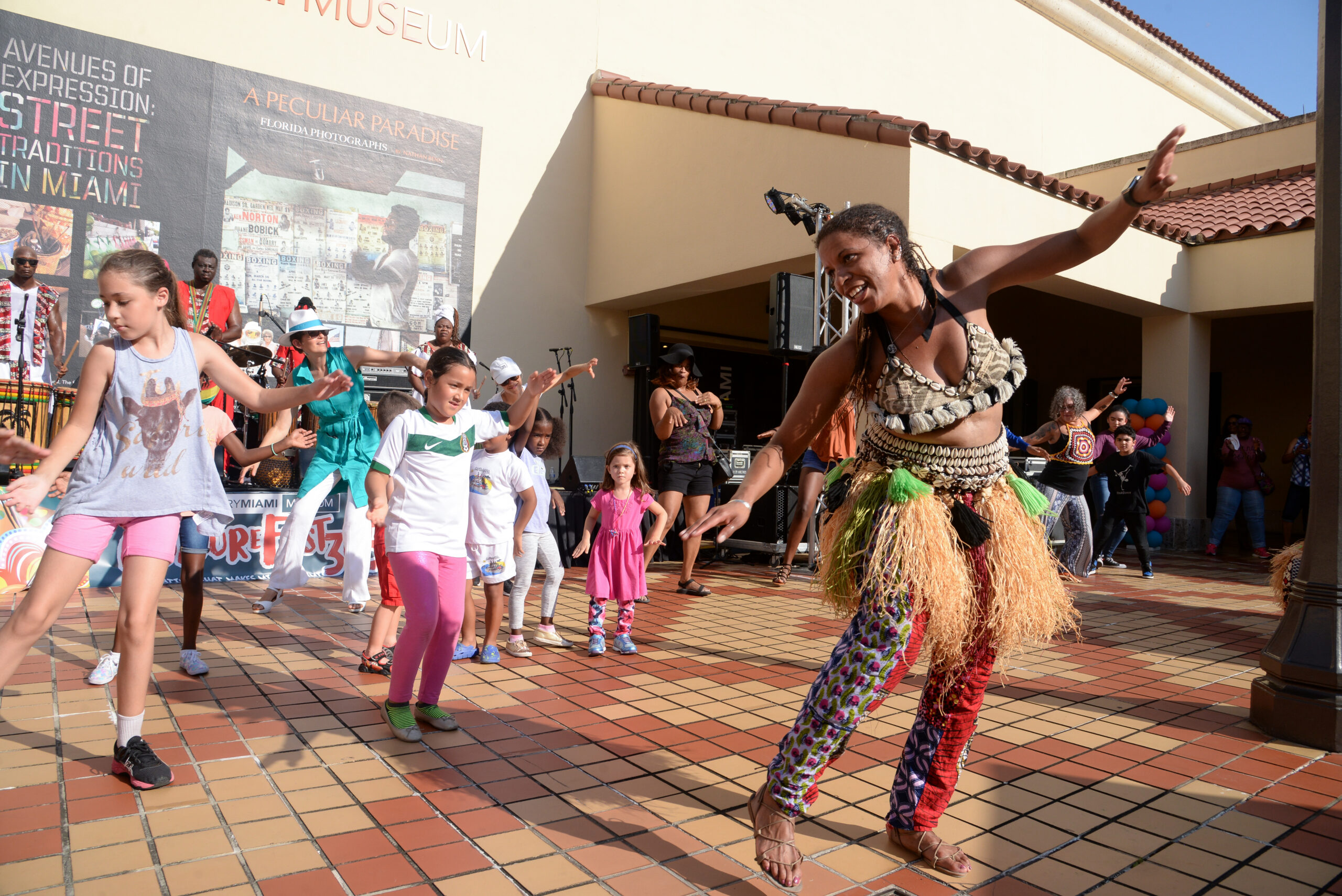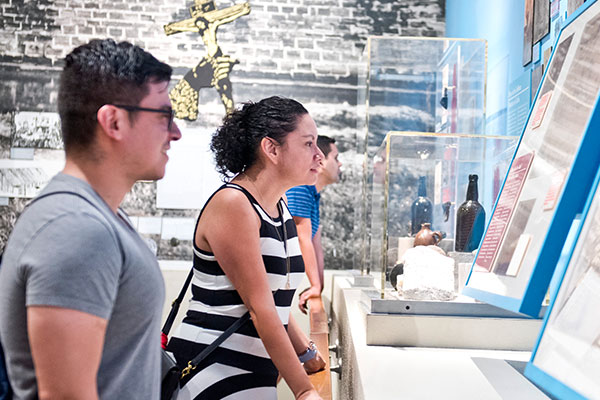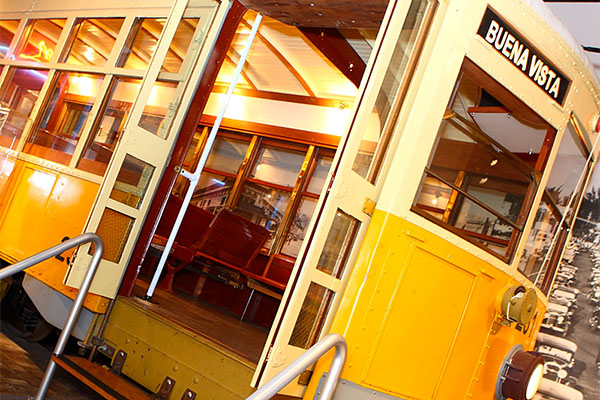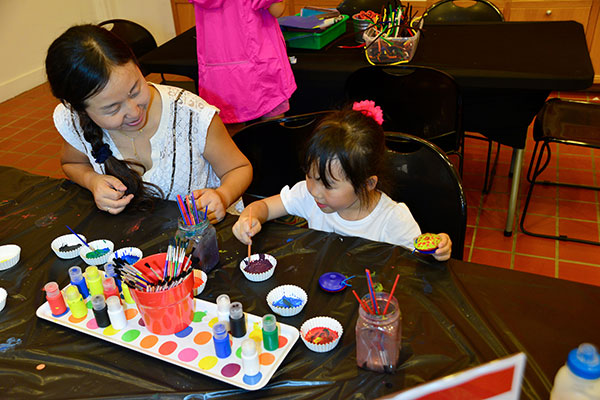Delou Africa Dance Ensemble is a leading West African folklore company and artist collective of talented drummers, musicians, dancers, and storytellers. Founded by Njeri Plato in 1987, the organization showcases the rich traditions of West Africa through artistic expression, education, and cultural preservation. Delou Africa offers year-round programs, including the annual African Diaspora Dance & Drum Festival of Florida. Through African music and dance education, public performances, and community outreach, the company fulfills its mission to bridge cultural gaps and preserve African culture.
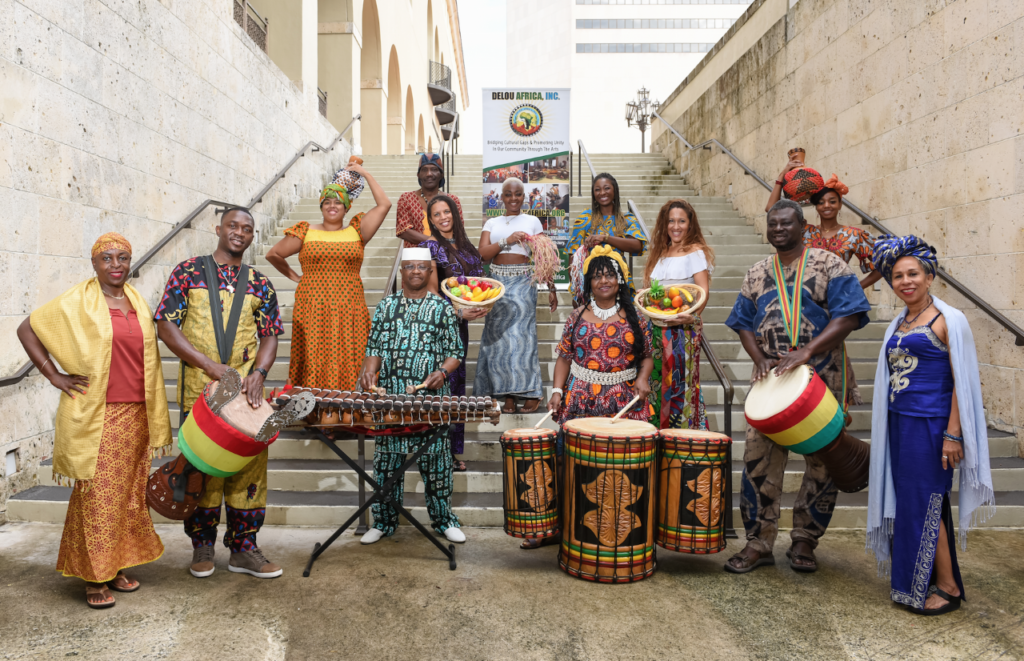
More about Delou Africa Dance Ensemble
The following is from an interview HistoryMiami Museum conducted with Njeri Plato in 2020.
What is your name and where are you from?
My name is Njeri Plato, the founder and Director of Delou Africa Dance Ensemble (D.A.D.E.) and Executive Director of Delou Africa, Inc. (D.A.I.). I was born in Trinidad, known as the Republic of Trinidad & Tobago, “The Twin Island.”
Tell me the story about how Delou Africa Dance Ensemble began.
I moved to the USA in 1971. In 1977, my love for expressing myself through dance grew stronger when I discovered West African folklore dance and music in Brooklyn, New York at the Uhru Sasha Shul. In 1981, I moved to Miami and quickly realized that West African art form was very limited in comparison to New York where I had opportunities to dance seven days of the week. In 1985 and 1987, I traveled to Senegal and Gambia to study and further my knowledge in African dance, music, and culture. I was encouraged to start my own company by one of the dance instructors in Senegal named Awa. She suggested I name my company Delou, which is a Wolof word spoken in Senegal that means “back or return to.” Shortly after I returned to Miami, Delou Africa Dance Ensemble (D.A.D.E) was born. I was inspired to bridge cultural gaps by providing a platform to showcase and educate communities about the rich traditions of Africa through dance, drum, music, art, culture, and history.
What traditions does the group practice, perform, and teach?
D.A.D.E. is a premier cultural arts, traditional West African folklore company comprised of an artist’s collective of talented drummers, musicians, dancers and oral historians or storytellers. Our purpose is to foster awareness by connecting the timeless traditions of West Africa to the vast presence of the African Diaspora. Our performance presentations are motivated by folktales and life transitions that inspire cultural artistic interpretations that leaves our audiences captivated.
In which areas of the world did these traditions originate?
The traditions we perform originate mainly in West Africa.
Where are they practiced today and how did they spread throughout the world?
It is simpler to name the continents verses the many countries that West African folklore dance and music is presently represented: Asia, Europe, North & South America, Australia and of course many regions in West Africa. This art form was promoted throughout the world by national ballets and pioneers like the late Dr. Charles Chuck Davis, Babatunde Olatunji, Katherine Dunham, Pearl Primus, and countless others who paved the way for African movements and rhythms to be accepted and accessible in academic institutions. These icons helped educate society on the rich traditions of West African folklore through arts and culture.
How do you incorporate storytelling in your workshops and performances? Why is storytelling important?
African movements and rhythms are based on cultural interpretations and artistic expressions of life experiences depicted through the art of folklore and African folktale, which are incorporated into the theme of the presentation. Storytelling is an important form of communication that teaches society life lessons and morals of life through culture, belief, and preservation.
What kinds of instruments do you use and how are they made?
The most frequently used instruments are known as the Djembe orchestra that consist of at least two Djembe’s (hand drums), a set of three drums called dun-duns (stick drums), and a balafon (wooden xylophone). Additional authentic and traditional instruments can be included to enhance the acoustics of the Djembe orchestra such as the krin, coura, and goungouma. These instruments are played in countries like Guinea, Mali, Ivory Coast, and other West African countries and globally. The Djembe was created in the 12th century by the Mandinke ethnic group of Mali.
We also use an instrument unique to Senegal. These drums are a set of three drums played with a stick and your hands called the Sabar orchestra. Another instrument we use that is unique to Gambia is the Kouterio orchestra which is also played with a stick and your hand. The materials that are used in constructing these instruments are made from natural elements like wood from specific trees, metal rings, rope, string, and goat or cow skins. Calabash or gourds are used for the Balafon and Shekere.
What kinds of rhythms do you perform? What is the history of these rhythms?
Rhythms are played for different occasions such as: harvest, courtship, adversity, initiation, strength, royalty, rites of passage and other celebratory and ceremonious events.
What kinds of costumes do you use and where do they come from?
Costumes for dancers, drummers, and musicians are customarily made from African or solid print material adorned with embroidery, beaded belts, cowrie shells, tassels, pom-poms, and many other creative accessories.
What is Delou Africa Inc.’s mission?
Our mission is to bridge the gaps of our diverse community by facilitating artistic education through traditional African dance, drum, music, art, and history. This provides opportunities for expression, growth, and appreciation that enrich the culture of all walks of life in a supportive and nurturing environment.
What do you value most about performing and educating the public on these traditions?
I value the concept of connecting and unifying audiences and participants from all walks of life. I also whole heartedly enjoy the ability to celebrate diversity through Delou’s continuous efforts to preserve culture and showcase the vibrancy of West African folklore through the universal language of dance and music and through arts initiatives and cultural engagements that enhance social enrichment and community development.
Is there anything else you would like to share?
D.A.D.E. was created in 1987 and expanded their brand in 2010 to include a more in-depth community outreach opportunity which resulted in the creation of Delou Africa, Inc. Delou Africa, Inc. (D.A.I.) is a community based cultural arts non-profit 501(c)(3) organization that has a residency at the Little Haiti Cultural Complex, located in Miami, Florida.

